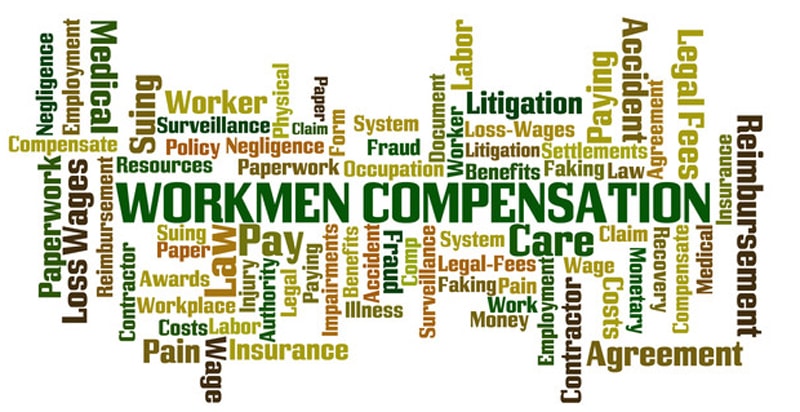Workers are covered by workers’ compensation for injuries sustained while on the job. Medical records review is an important requirement in determining compensation and workers’ comp lawyers utilize the service of medical record retrieval companies to obtain all the relevant medical documentation. A work-related injury doesn’t necessarily have to happen at the job site – for instance, an injury sustained at an employer-sponsored party at a bowling alley may be eligible for compensation. However, driving to work is not usually considered as a work-related activity and therefore the employer may not be held liable for the same. This is in the context of the “coming and going rule.”
The “coming and going rule” states that workers’ compensation benefits do not apply to injuries sustained while commuting to and from work, with exceptions. What are these exceptions? Exceptions to this rule exist in certain situations such as:
- The employee has no fixed place of work, which means he/she is a “traveling employee.”
- The injured worker was on a special assignment from the employer.
- The employment contract includes transportation to and from work. The employer controls the means of transportation and provides for the commute-related costs.
- There are special circumstances involved and the employee was promoting the employer’s business in some manner while driving. Some courts (for e.g. Pennsylvania courts) have always maintained that even when workers are injured while not actively furthering their employer’s business, their injury may be compensable in the following instances:
- The worker is on premises occupied by or under the control of the employer, or on which the employer’s business functions.
- The injury was caused by the condition of those premises or by the employer’s operation of business affairs.
- The worker’s job required him/her to be present on their employer’s premises.
- When traveling is a part of the employee’s major job responsibility. Employees in this category include pilots, bus and truck drivers, and state troopers among others. Railroad injuries are handled via the Federal Employers Liability Act (FELA).
- The worker was commuting in a company car. While driving your own car to work is exempted by the coming and going rule, commuting in a company vehicle is often covered by workers’ comp in most U.S. states.
- The employee has to travel between multiple job sites. Under most state workers’ compensation laws, using your own vehicle to travel to multiple job sites within one shift is regarded as job-related usage. Examples include a landscaping company employee driving to diverse job sites, or a computer technician driving from one office to another.
- Commercial travellers – All the time you spent away on a business trip may be considered within the scope of employment according to most laws. In the case of a traveling employee who attends a conference for just 7 – 8 hours each day, the entire time spent traveling is typically considered work related.
Significant Cases
The U.S. Supreme Court identified four exceptions to the “coming and going rule” in 1991 in Peterson V. Workers’ Compensation Appeal Board (PRN Nursing Agency), 597 A.2d 1116 (Pa. 1991). These 4 exceptions are as follows:
- The claimant has no fixed place of work
- The employment contract includes transportation to and from work
- The worker is on a special assignment or mission for the employer
- Special circumstances are such that the claimant was furthering the business of the employer.However, in another case, the Commonwealth Court in Kush v. Workers’ Compensation Appeal Board (Power Contracting), No. 1688 C.D. 2017 arrived at the conclusion that no exception to the “coming and going rule” existed in the case even though the claimant presented a number of arguments. The claimant in this case was employed as a union electrical worker for 2 companies – Power Contracting and Vantage – for the 3 years prior to the accident. He was injured in a motor vehicle accident while driving to work for Power Contracting. He filed two claim petitions against Power Contracting alleging disability caused by the accident. As an electrical foreman, he managed different jobs for each employer and many of these jobs occurred at the same time. He indicated that he was paid separately by each employer. His job required him to move from one job site to another fairly regularly and had to work at different job sites on the same day. The claimant alleged that he had been injured in the course and scope of his employment since he was employed either as a traveling employee, or on a special mission for Power Contracting. Neither Power Contracting nor Vantage accepted responsibility. The Court held that the claimant had a fixed job location on the day of the accident, and therefore no exceptions existed in this case.
Cases such as the above related to the “coming and going rule” are valuable pointers for legal practitioners that will help determine whether an exception to the rule actually exists or doesn’t exist in particular cases that come before them. A medical review company serving workers’ compensation and personal injury lawyers knows that the facts of each case matter, including the nature of the injury sustained, where and how it occurred and so on. Since there is only a fine demarcation between a job-related injury and a non-job-related injury, attorneys would carefully review the “coming and going rule’s” regulations and exemptions before encouraging their injured clients to submit their claims.




